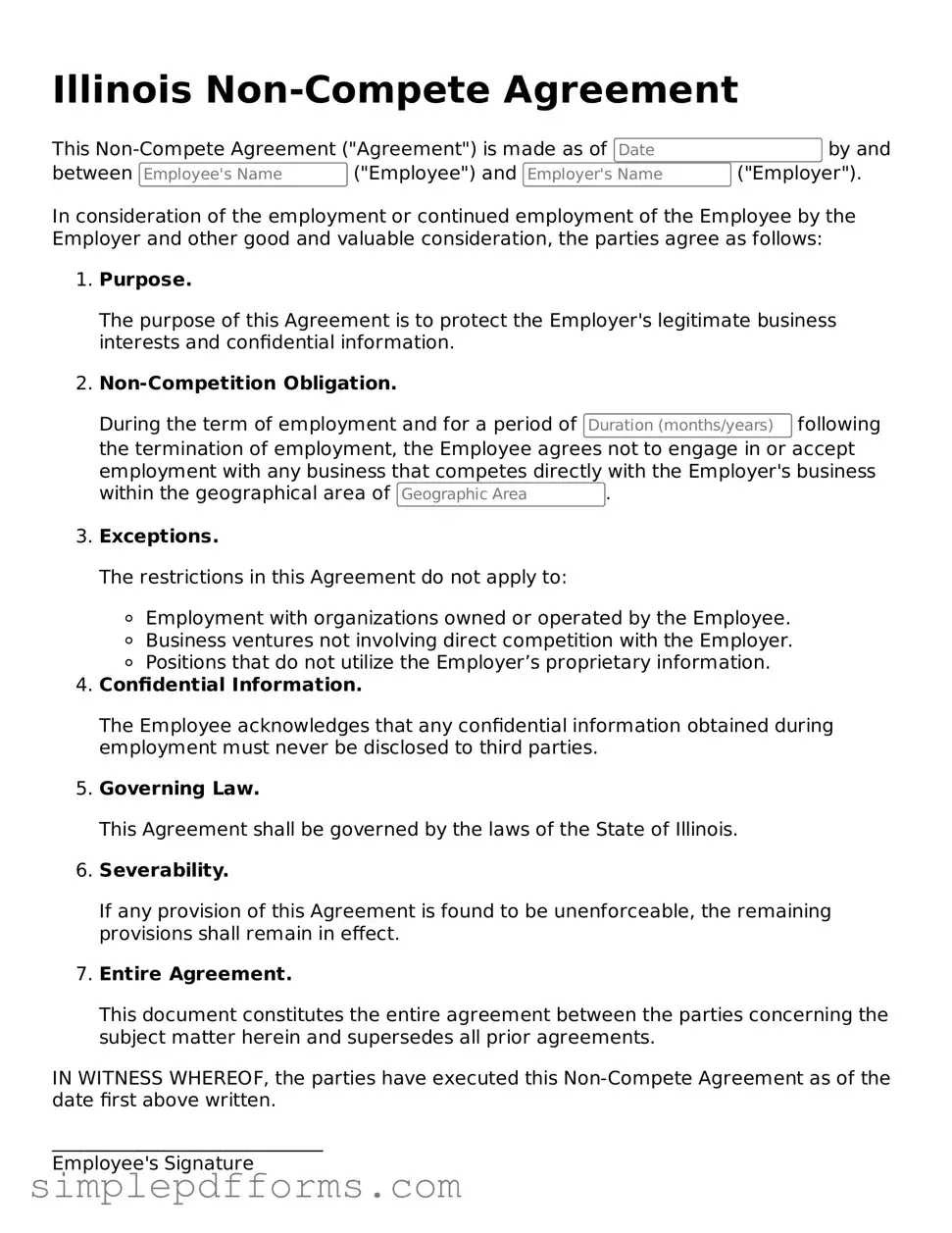Filling out the Illinois Non-compete Agreement form can be a daunting task. Many individuals make common mistakes that can jeopardize the enforceability of the agreement. One frequent error is failing to clearly define the scope of the restrictions. It’s essential to specify the geographic area and the nature of the activities that are being restricted. Without this clarity, the agreement may be challenged in court.
Another mistake is overlooking the duration of the non-compete clause. An overly long restriction period can render the agreement unenforceable. In Illinois, courts tend to favor reasonable time frames, typically ranging from six months to two years, depending on the circumstances. Ensuring the duration is justifiable is crucial.
People often forget to include consideration in the agreement. Consideration refers to something of value exchanged between the parties. If an employee signs a non-compete without receiving any benefit, such as a promotion or bonus, the agreement may lack enforceability. Thus, it’s vital to ensure that both parties receive something valuable.
Additionally, many individuals neglect to review the agreement with legal counsel. Legal nuances can significantly impact the enforceability of a non-compete agreement. Engaging a lawyer who specializes in employment law can help identify potential pitfalls and ensure that the agreement complies with state laws.
Another common oversight is failing to communicate the terms of the agreement clearly to all parties involved. Employees should understand what they are signing and the implications of the non-compete. Providing a thorough explanation can help avoid misunderstandings and potential disputes later on.
Some individuals mistakenly assume that a non-compete agreement is a one-size-fits-all document. Each agreement should be tailored to fit the specific situation of the employee and employer. Generic templates may not address unique aspects of the employment relationship, which can lead to enforceability issues.
Moreover, people often ignore the importance of including a severability clause. This clause ensures that if one part of the agreement is found to be unenforceable, the remaining provisions still stand. Without this clause, a single invalid section could invalidate the entire agreement.
Another error is not updating the agreement when circumstances change. If an employee’s role or the nature of the business evolves, it’s important to revisit and revise the non-compete agreement accordingly. Failing to do so can create gaps that may be exploited in the future.
Many individuals also overlook the potential for state law changes. Employment laws can evolve, and what was once enforceable may no longer hold up in court. Staying informed about legal developments in Illinois is essential for maintaining the validity of a non-compete agreement.
Finally, some people forget to keep a signed copy of the agreement for their records. Having a copy ensures that both parties can refer to the terms if any disputes arise. This simple step can save time and resources in the long run.

